The Da Nang Museum of Cham Sculpture, also known as the Museum of Cham Sculpture, is a place dedicated to preserving and promoting the cultural heritage of the prosperous period of the ancient Champa Kingdom. The museum is included in the list of historical and culturally significant tourist destinations for visitors to Da Nang. If you have the opportunity to travel to Da Nang, it is recommended that you visit the Museum of Cham Sculpture to reminisce and witness the echoes of a bygone era brought to life through its valuable artifacts.
Table of Contents
Introduction to the Da Nang Museum of Cham Sculpture.
The Da Nang Museum of Cham Sculpture, also known as the Cham Museum, or its full name, the Museum of Cham Sculpture, is a place that you should visit if you have the opportunity. It offers a chance to expand your knowledge in a way that is hard to find in any book.
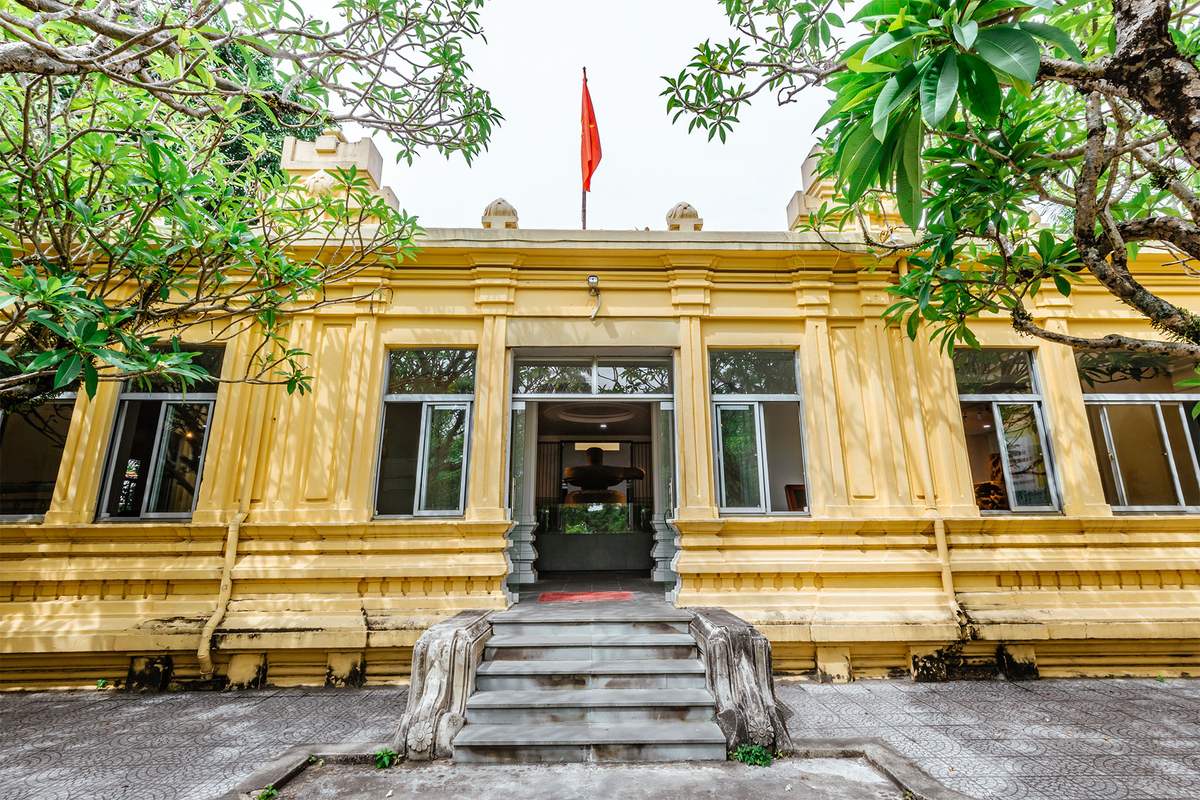
Where is the Da Nang Museum of Cham Sculpture located?
It is situated at the intersection of 2/9 Street and Trung Nu Vuong Street, Hai Chau District, in the city of Da Nang. This location is very convenient and easy for tourists to find. Furthermore, the museum is located across from the Vietnam Television Center in Da Nang, making it even more convenient for finding directions.
The Da Nang Museum of Cham Sculpture was officially opened in 1919 after 5 years of construction and is currently the largest repository and exhibition space for Cham Pa cultural artifacts. The total actual area of the museum complex is 6673m2, with 2,000m2 allocated for the display of ancient relics. In addition, the Da Nang Museum of Cham Sculpture also features a section with photographs and documents about Cham culture and other cultures. Here, visitors have the opportunity to explore the ancient and prosperous Cham Pa kingdom with its unique historical and artistic values in Cham sculpture.
The History of the Development of the Da Nang Museum of Cham Sculpture.
The Da Nang Museum of Cham Sculpture was constructed from 1915 to 1919 by French individuals who were passionate about archaeology, especially those affiliated with the French School of the Far East.
In the late 19th century, large-scale archaeological excavations of Cham Pa culture were carried out by French archaeology enthusiasts and those working for the French School of the Far East. Many artifacts were discovered, and the idea of building a museum to preserve and protect these antiquities emerged.
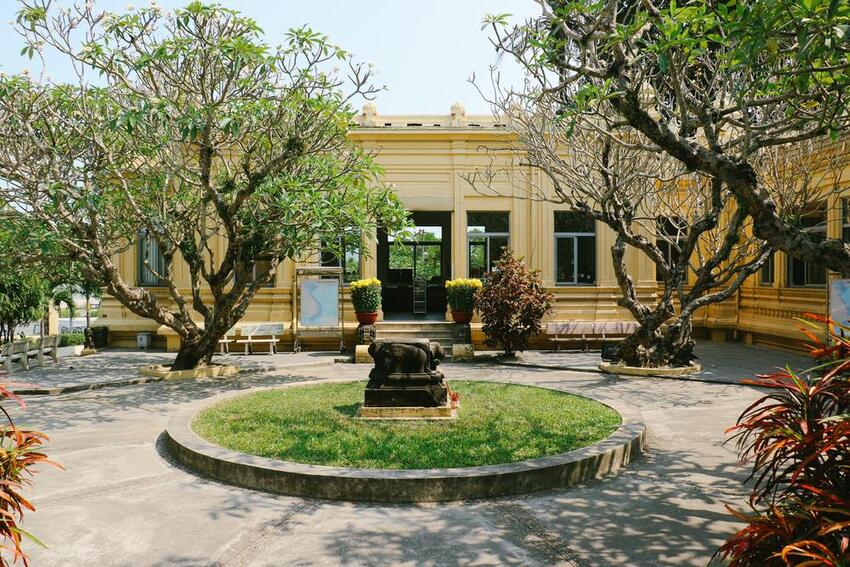
Since then, the Cham Sculpture Museum underwent its first expansion in the mid-1930s to accommodate the artifacts excavated in the 1920s and 1930s. Over time, this Cham museum has undergone three more renovations and expansions in 2002, 2005, and 2016. The museum was the result of the dedication, efforts, and passion for collecting antiquities by French archaeologists and other enthusiasts from the French School of the Far East, in collaboration with Vietnamese archaeology enthusiasts.
How to Get to the Da Nang Museum of Cham Sculpture.
The Da Nang Museum of Cham Sculpture is located just about 3 kilometers east of the center of Da Nang and approximately 29 kilometers west of Hoi An’s ancient town. Therefore, you can reach the museum by car, motorbike, or by taking a bus.
Getting to the Da Nang Museum of Cham Sculpture by Motorbike.
When you visit Da Nang, don’t miss the chance to experience the cool and comfortable feeling of riding a motorbike along the coastal road. You can easily rent a motorbike at a good price and choose the most suitable means of transportation for yourself. You can follow these detailed itineraries to get to the Cham Sculpture Museum from Da Nang and Hoi An:
- Route 1: Depart from Da Nang to the Cham Sculpture Museum, which is approximately 2.7 km away and takes about 10 minutes with the following route: From the city of Da Nang, head east and turn left onto Duy Tan Street. Then, take the first exit onto Nguyen Van Linh at the roundabout. After that, turn right onto 2/9 Street, and you will arrive at the Cham museum.
- Route 2: Depart from Hoi An and drive along the cool coastal road, covering a distance of nearly 30 km and taking about 44 minutes with the following detailed route: Head west to Cua Dai, then turn right at Cafe & Bar Eden onto Ba Huyen Thanh Quan. After that, turn right at CONG TY CO PHAN TUAN NGHIA onto Ly Thuong Kiet, and continue onto Ly Thai To. Then, turn right at Center Homestay onto Hai Ba Trung. At The Ocean Estates, continue onto Truong Sa, then onto Vo Nguyen Giap. At a roundabout, take the second exit onto Vo Van Kiet, and continue onto Bach Dang. Turn left at the sugarcane juice intersection onto Le Hong Phong, then turn left at Bai do xe VTV8 onto Tran Phu. Finally, turn left onto Nguyen Van Linh, and, lastly, turn right onto 2 Thang 9, which is the destination.
Getting to the Da Nang Museum of Cham Sculpture by Private Car.
If you are not a driver, you can choose to travel to the Cham Museum by renting a private car with a driver in Da Nang for safety and comfort without worrying about weather conditions. With the private car service from VnCarRentals.com’s, you will get more than just transportation. You will have a professional driver who will pick you up on time at your hotel, the airport, or any other location. Plus, with a private car, you have the freedom to choose your departure time and explore many famous tourist destinations at your own pace.
To Get to the Da Nang Museum of Cham Sculpture by Bus.
Start from the central bus station in Da Nang (Quang An 1 Industrial Company) to catch buses that travel through the inner city to reach the Cham Museum. One small note to keep in mind is that the bus routes here typically run every 20 to 30 minutes, and the ticket prices range from 5,000 VND to 10,000 VND for a one-way trip. So, make sure to have small change ready in advance to avoid any inconvenience when taking the bus.
Ticket Prices for the Da Nang Museum of Cham Sculpture – Reference
- The entrance fee for visiting the Da Nang Museum of Cham Sculpture is 60,000 Vietnamese Dong per person for adults and 10,000 Vietnamese Dong per person for students.
- School students participating in educational programs still enjoy free admission.
- Address: 02 2/9 Street, Da Nang City, Vietnam.
- Visiting Hours: From 7 am to 5 pm daily.
In addition, if you wish to have guided tours about the displayed artifacts at this location, they are available for groups of 5 people or more in Vietnamese, English, and French.
What’s Interesting About the Da Nang Museum of Cham Sculpture?
Let’s explore what makes the Da Nang Museum of Cham Sculpture so appealing to a wide range of tourists from all over the country and internationally.
Explore the Unique Architecture of the Cham Museum
You might not be aware that the Cham Sculpture Museum is classified as a Grade 1 museum in Vietnam, recognizing its significant role in preserving and promoting the cultural heritage. Its architectural style is a masterpiece designed in the famous Gothic style by two French architects. The museum’s standout feature is its pointed arches, making it a prominent landmark in the city. The spacious rooms with numerous windows allow natural sunlight to illuminate the entire space. The exterior is characterized by a golden hue with hints of moss, combined with the natural greenery of the surrounding trees, creating an intimate and familiar atmosphere.
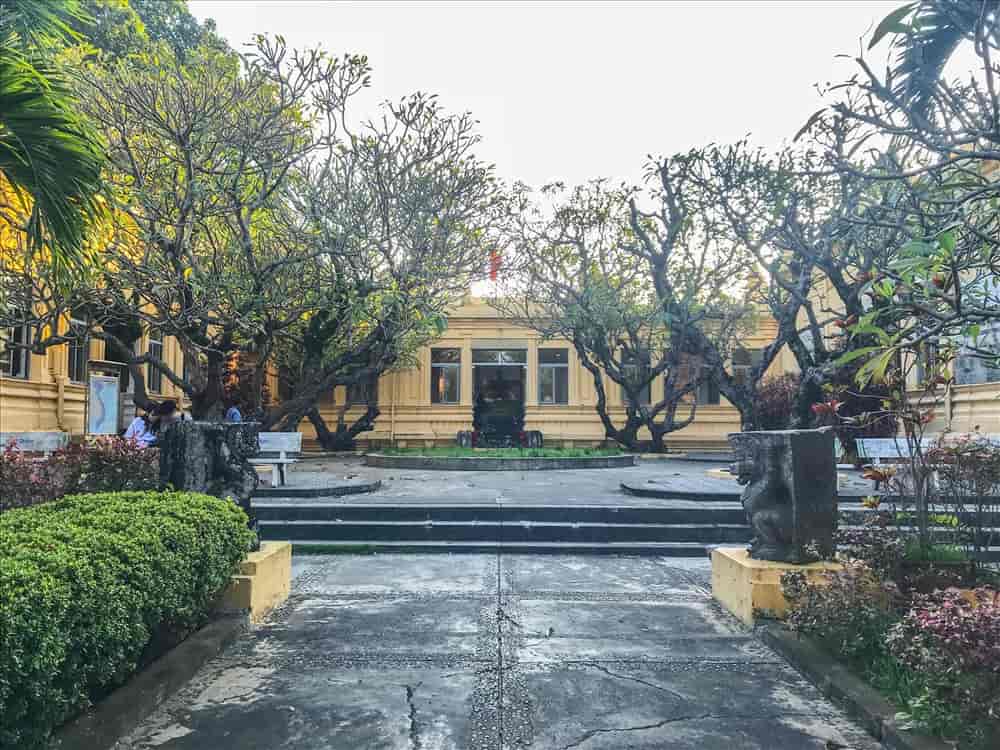
Thanks to the many windows, almost all the exhibition areas receive natural light. Many tour groups enjoy coming here to stroll and get up close to the exhibited artifacts, explore the mysteries of these historical items, and capture impressive photos as souvenirs. In addition to its beautiful and unique architecture, the museum also boasts a diverse and valuable collection of artifacts.
Listen to Lectures on the History of the Cham Museum
The artifacts are divided into different exhibition rooms based on the regions where they were excavated, such as Tra Kieu, My Son, and Thap Mam, making it convenient for visitors to explore and learn about each area. Currently, the museum stores and exhibits over 2,000 artifacts from the Cham dynasty, but only around 500 are on display, with the rest kept in storage. Three of these artifacts are classified as national treasures: the My Son E1 Tower, Tra Kieu Tower, and the Tara Bodhisattva Statue.
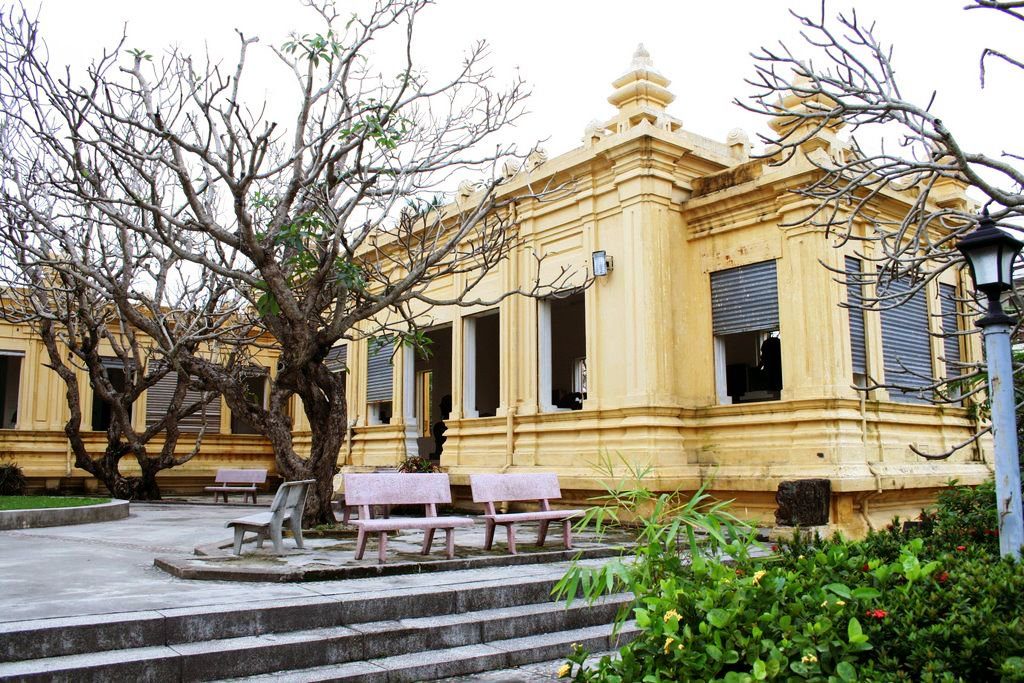
Most of the artifacts in the Da Nang Museum of Cham Sculpture are made from fired clay, bronze, and sandstone. Notably, the intricate and distinctive Cham patterns and motifs are a hallmark of Cham culture. Some of the most outstanding artifacts in the museum include the dancing Shiva statue, the Yaksa and Krishna reliefs, the Linga-Yoni shrine, the Naga serpent deity, the Tra Kieu apsara, and the goddess of happiness, Lakshmi. In addition to the sculptures, there is a room dedicated to displaying photos and documents about Cham Pa architecture and other remarkable architectural structures in Southeast Asia. These sculptures provide valuable insights into the distinctive culture of the Cham Pa people and a deeper understanding of the history of the once-prosperous Cham Pa kingdom.
Exploring the Da Nang Museum of Cham Sculpture
The Da Nang Museum of Cham Sculpture has 4 exhibition rooms, including:
Visiting the Dong Duong Exhibition Room
Dong Duong is known as the religious center of the Champa Kingdom, located about 20km south of the sacred site of My Son. Therefore, the Dong Duong exhibition room will introduce you to sculptures with a strong influence of Buddhism. Here, you will have the opportunity to admire the intricate and delicate carvings of these artworks. They reflect a blend of various influences, including Chinese, Indian, and Champa styles.
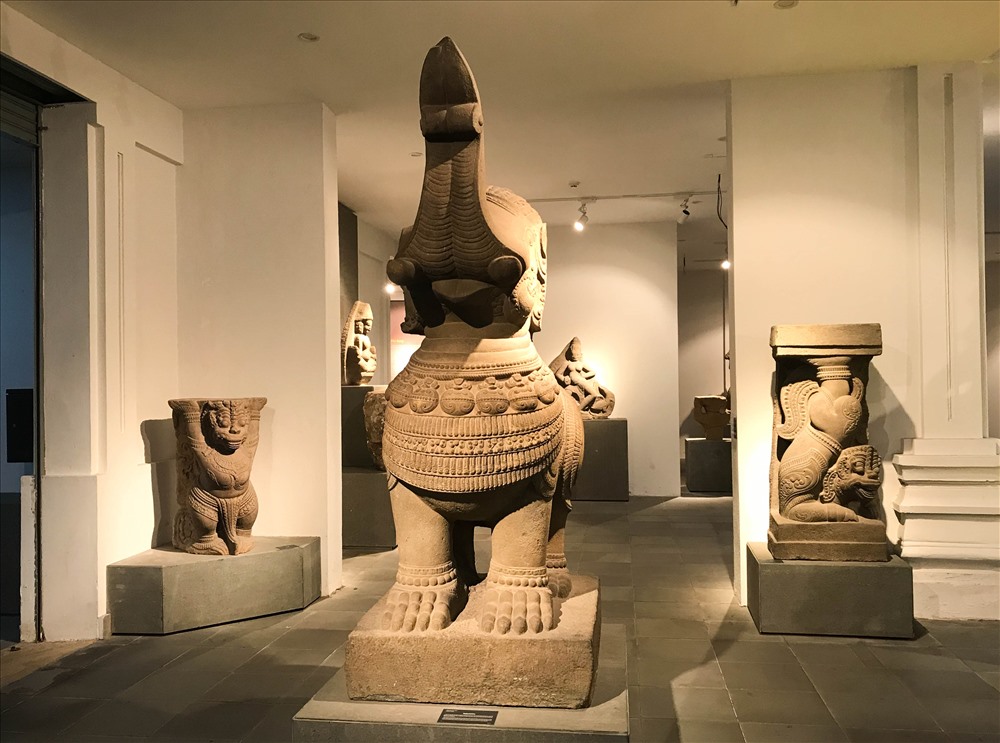
The Dong Duong exhibition room allows you to comfortably contemplate the artworks of the Dong Duong tower. Among the 21 displayed pieces, the most notable are the statue of Bodhisattva, the Deva deity, and the Dong Duong altar, among others. Even though this represents only a small portion of the Dong Duong tower, you can easily imagine the grandeur and magnificence of this Buddhist sanctuary.
My Son Exhibition Room
This area is exclusively dedicated to artifacts collected and discovered at the My Son sanctuary in Quang Nam. The My Son exhibition room preserves 18 artifacts from three categories: the main towers, secondary towers, and decorative relics from the front façades. Here, you can check-in to Da Nang with these artifacts.
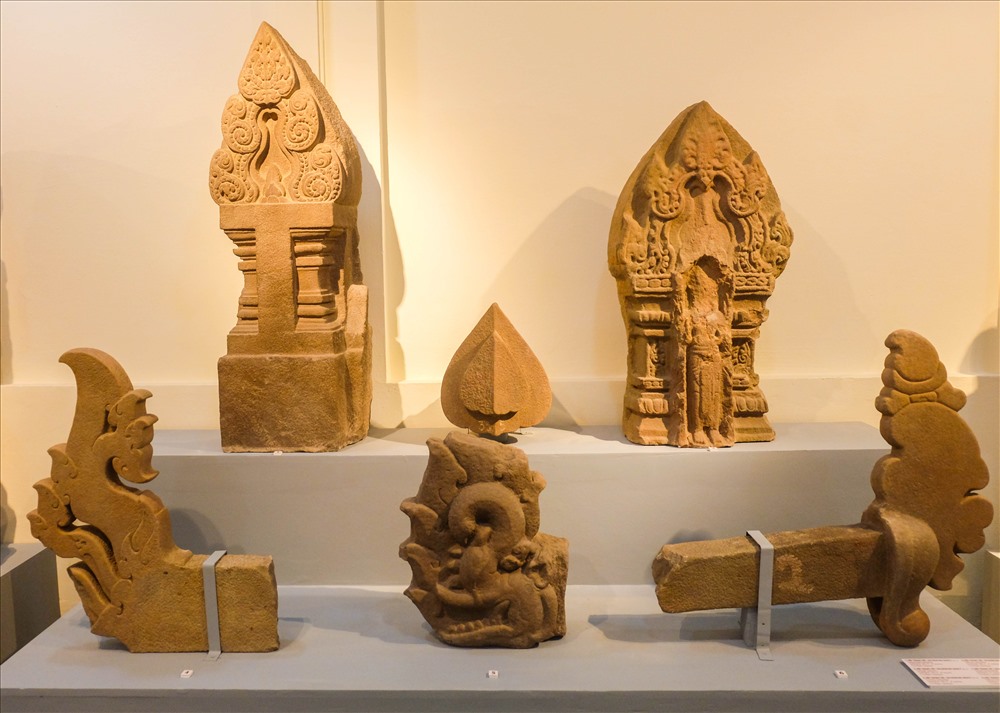
The My Son room at the Da Nang Museum of Cham Sculpture also houses prominent and unique relics, including statues of Shiva, Ganesha, and the Brahmanical deity.
Thap Mam – Binh Dinh Exhibition Room
The Thap Mam room showcases artifacts that represent the distinctive cultural heritage of the Champa people who lived in and migrated to Binh Dinh province. Despite their ancient origins, dating from the 12th to the 15th century, most of these artifacts remain in excellent condition due to careful preservation.
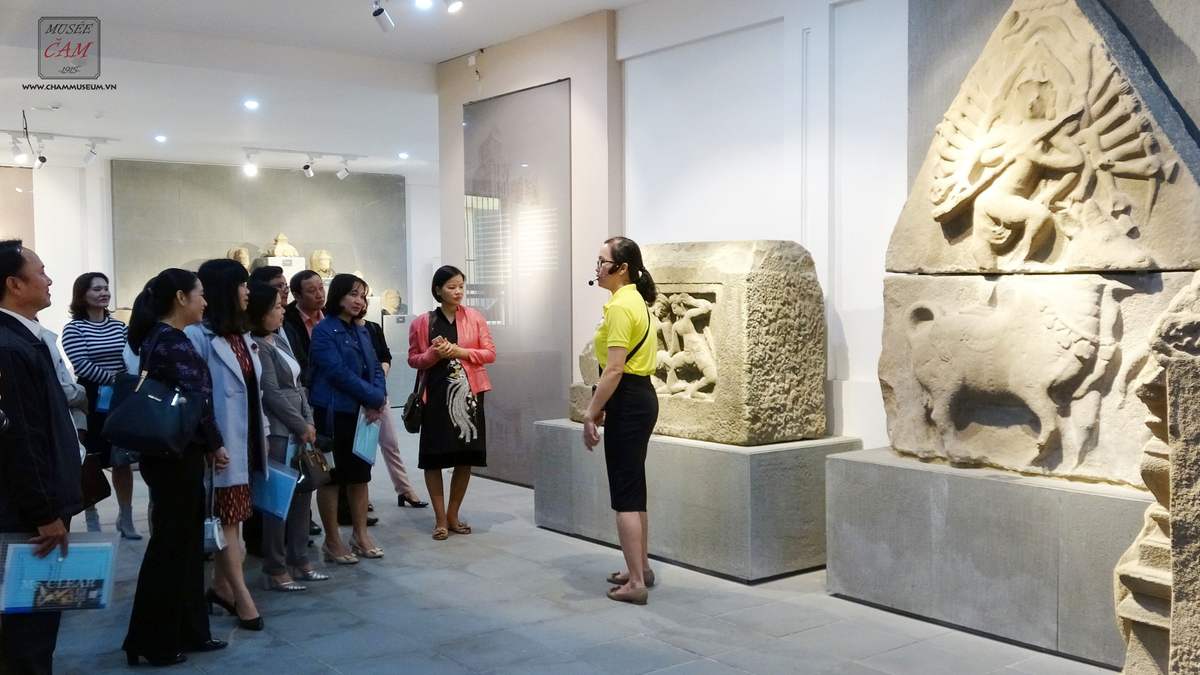
The Thap Mam exhibition room holds about 67 finely detailed and meticulously carved sculptures, all of which reflect the unique spirit and culture of the ancient Champa people.
Tra Kieu Exhibition Room
The Tra Kieu room displays artifacts from the first capital of the ancient Champa people. It currently houses over 40 artifacts and relics, including unique items like Shiva, Vishnu, and altars. All of these items have a remarkable age, spanning from the 7th to 8th century and the 11th to 12th century.
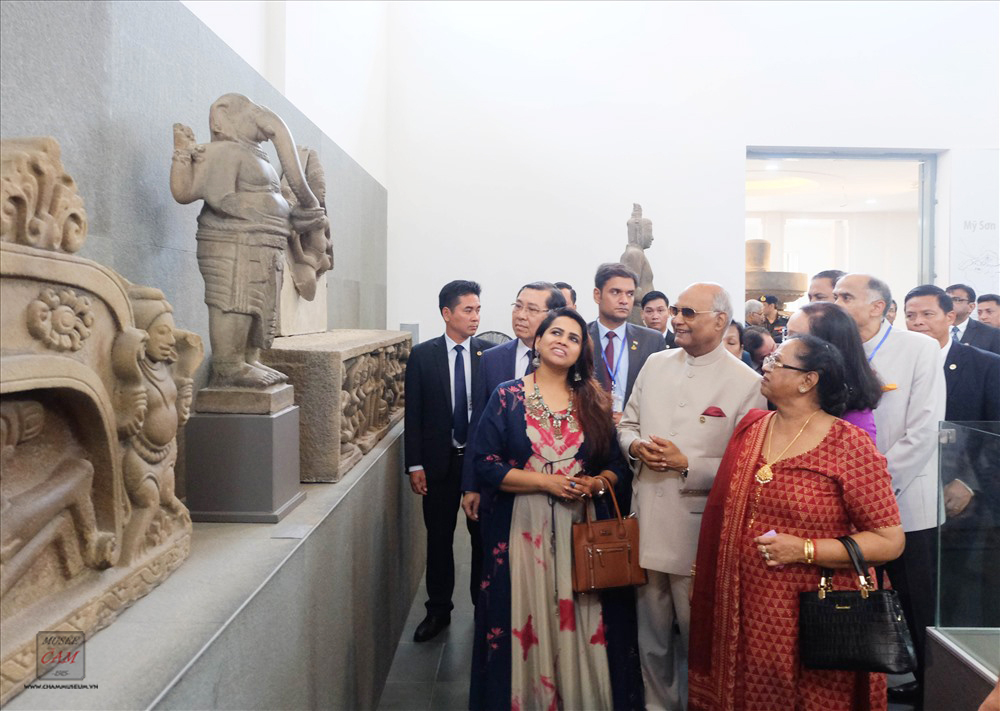
The Da Nang Museum of Cham Sculpture serves as a place to preserve, protect, and celebrate the material and spiritual values of the flourishing period of the ancient Champa Kingdom. Here, you can immerse yourself and reminisce about the echoes of the past through precious ancient artifacts.
Some Notes for Your Visit to the Da Nang Museum of Cham Sculpture.
- The museum stops accepting group presentation registrations at the front desk before 10 am in the morning and before 4 pm in the afternoon to ensure the minimum time for guided tours according to the schedule.
- For groups with tour guides or requests for guides in English and French, please contact the museum at least 3 days in advance.
- For cases of free admission or reduced fees, please contact the museum for detailed information.
- It is recommended to take a guided tour to learn more about the museum and discover interesting information that may not be found in books.
The Da Nang Museum of Cham Sculpture is an important center for the preservation, protection, and celebration of cultural and artistic values related to the ancient Champa civilization. It is a destination with a high historical and artistic cultural value. If you have the opportunity to explore Da Nang, do not miss the chance to visit this museum. We hope that the information provided by VnCarRentals.com’s has helped you learn more about this destination and make an interesting choice for your journey.
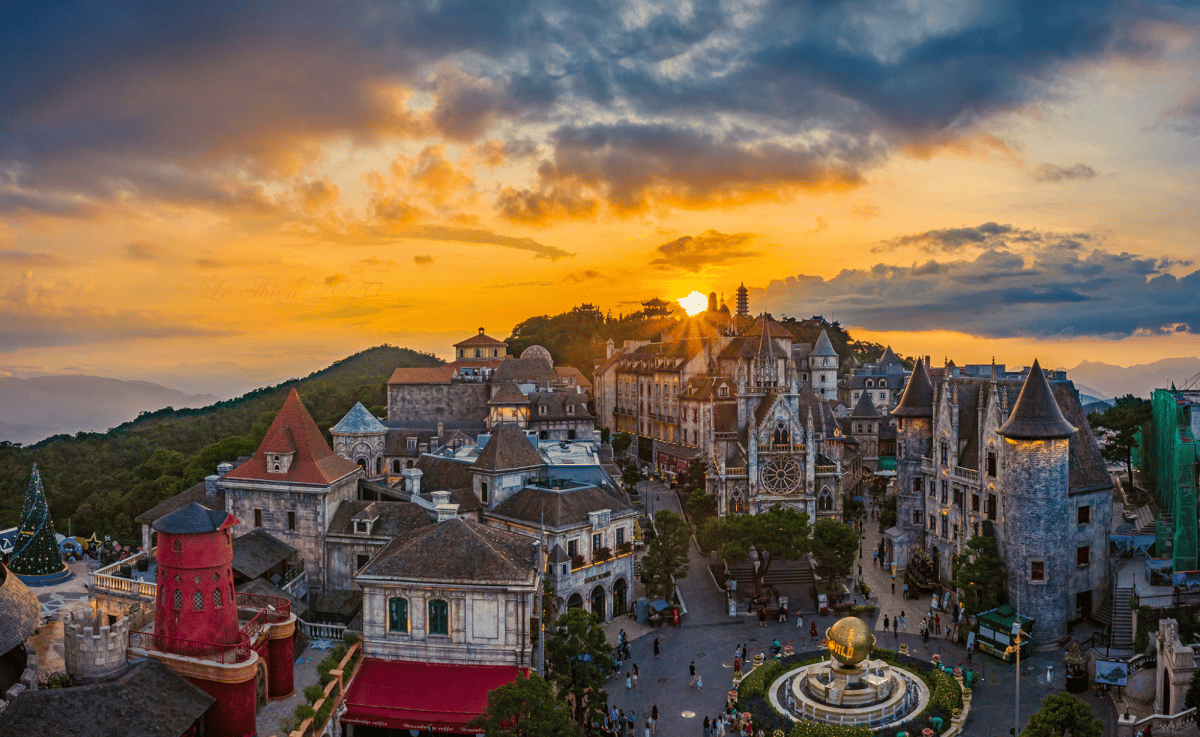

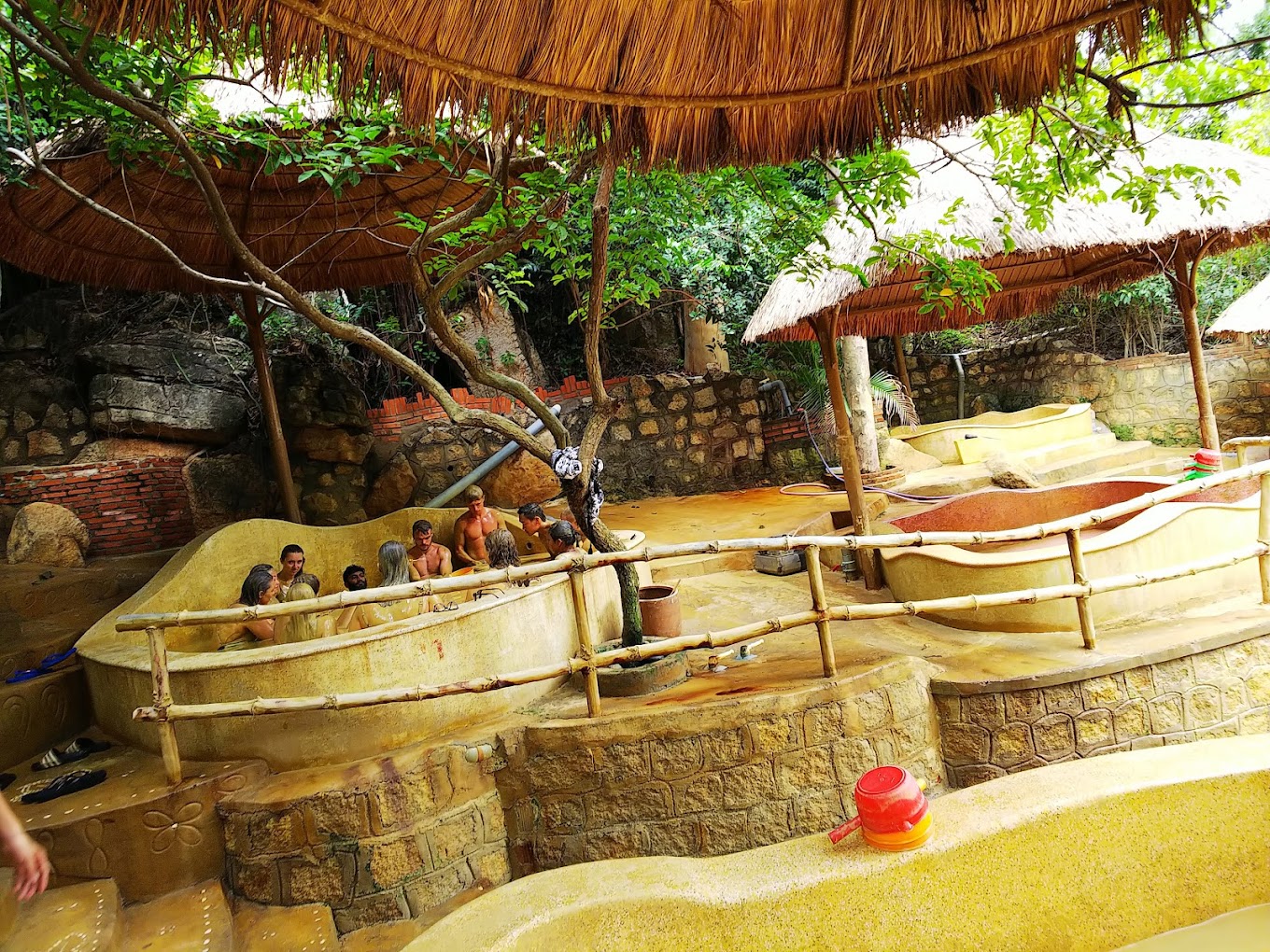
[…] The Cham Sculpture Museum is about 1.9 km from Da Nang Cathedral. You can visit the cathedral, explore and take photos in the morning, and then visit the museum. The Cham Sculpture Museum is the world’s largest collection of Cham sculpture art. The museum displays nearly 300 sculptures made of terracotta and stone, dating from the 7th to the 15th century. […]